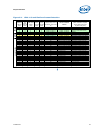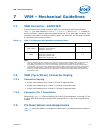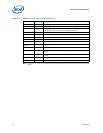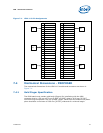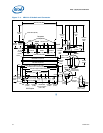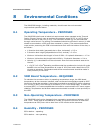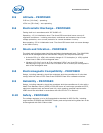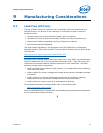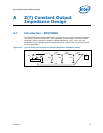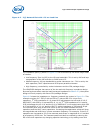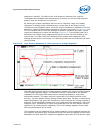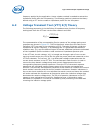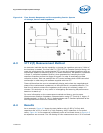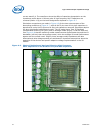
315889-002 47
Manufacturing Considerations
9 Manufacturing Considerations
9.1 Lead Free (Pb Free)
The use of lead in electronic products is an increasingly visible environmental and
political concern. The drivers for the reduction or elimination of lead in electronic
products include:
• Customer desire for environmentally friendly (‘green’) products.
• Manufacturer desire to be environmentally friendly, and be perceived as such.
• Government initiatives regarding recycling of electronic products.
• Planned and potential legislation.
The most notable legislation is the European Union (EU) Restriction on Hazardous
Materials directive, also known as RoHS. The commission directive may be found at the
following URL:
http://europa.eu.int/eur-lex/pri/en/oj/dat/2003/l_037/
l_03720030213en00190023.pdf
European Union “Member States shall ensure that, from 1 July 2006, new electrical and
electronic equipment put on the market does not contain lead...” Each EU country will
implement this law and establish penalties and fines for non-compliance. The RoHS
directive includes certain exemptions:
• Lead in high melting temperature type solders (i.e. tin-lead solder alloys containing
more than 85% lead).
• Lead in solders for servers, storage and storage array systems (exemption granted
until 2010).
• Lead in solders for network infrastructure equipment for switching, signaling,
transmission as well as network management for telecommunication.
• Lead in electronic ceramic parts (e.g. piezoelectronic devices).
For the latest information on RoHS please refer to the following URL:
http://europa.eu.int/eur-lex/en
Intel recommends that you consider Pb Free manufacturing processes and components
for the module and module connector.
§



